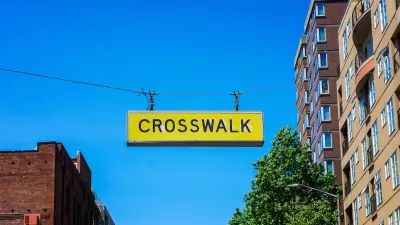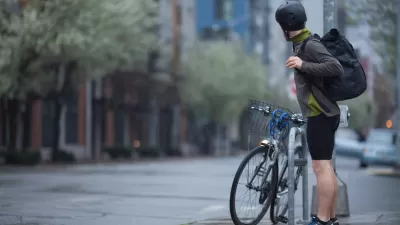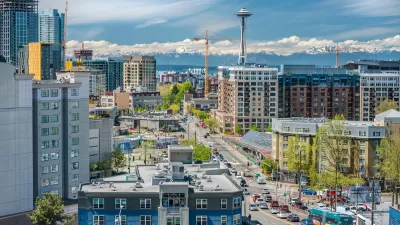As federal transportation funding grows increasingly uncertain, cities across the country are trying new approaches to generate funds for their planned streetcar projects.
Cities like Seattle, Tempe, and Salt Lake City are moving forward with their own funding mechanisms, according to this article from Urban Land.
"Seattle is using one of the more innovative approaches Lee explored. About half of the $52 million capital costs for the city's South Lake Union Line streetcar project will be provided by property owners adjacent to the system through a local improvement district (LID), with the remaining costs being borne by the federal, state, and local government. Private sponsorship opportunities for the line and stations will account for about 25 percent of operating expenses.
Other approaches are more traditional. In Arizona, the Tempe Streetcar's $163 million capital costs will be provided by a mix of regional tax revenue from an approved bond measure and a matching grant from the Federal Transit Administration's New Starts Program. The system's annual $3.1 million operating costs will be the responsibility of the city. Salt Lake City's $56 million Sugar House Streetcar line received a hefty grant from the U.S. Department of Transportation's TIGER II program that will cover 70 percent of the project's capital costs. Despite a $5 million commitment from area governments, however, the line still faces a shortfall in local funding."
FULL STORY: Federal Transportation Bill Uncertain; Cities Try New Ways to Finance Streetcars

Planetizen Federal Action Tracker
A weekly monitor of how Trump’s orders and actions are impacting planners and planning in America.

Chicago’s Ghost Rails
Just beneath the surface of the modern city lie the remnants of its expansive early 20th-century streetcar system.

San Antonio and Austin are Fusing Into one Massive Megaregion
The region spanning the two central Texas cities is growing fast, posing challenges for local infrastructure and water supplies.

Since Zion's Shuttles Went Electric “The Smog is Gone”
Visitors to Zion National Park can enjoy the canyon via the nation’s first fully electric park shuttle system.

Trump Distributing DOT Safety Funds at 1/10 Rate of Biden
Funds for Safe Streets and other transportation safety and equity programs are being held up by administrative reviews and conflicts with the Trump administration’s priorities.

German Cities Subsidize Taxis for Women Amid Wave of Violence
Free or low-cost taxi rides can help women navigate cities more safely, but critics say the programs don't address the root causes of violence against women.
Urban Design for Planners 1: Software Tools
This six-course series explores essential urban design concepts using open source software and equips planners with the tools they need to participate fully in the urban design process.
Planning for Universal Design
Learn the tools for implementing Universal Design in planning regulations.
planning NEXT
Appalachian Highlands Housing Partners
Mpact (founded as Rail~Volution)
City of Camden Redevelopment Agency
City of Astoria
City of Portland
City of Laramie





























